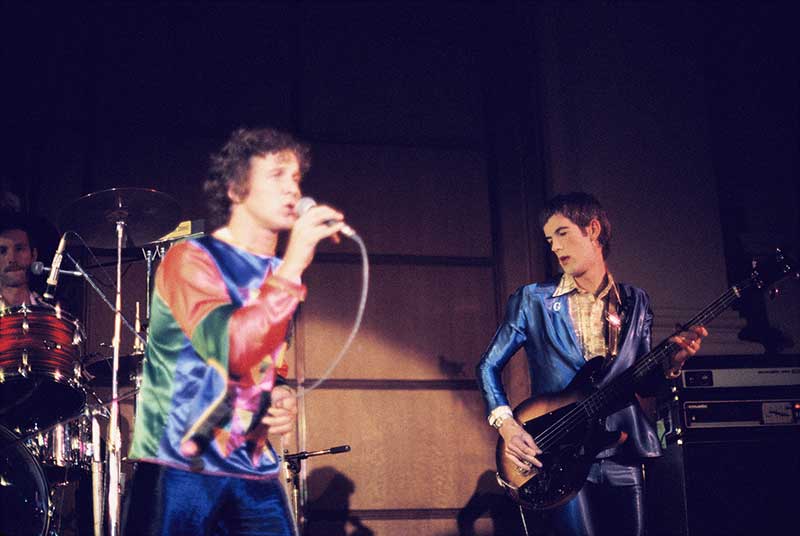There were no mobile or iPhones, just landlines. If you wanted privacy away from the ears of the family or the share house mates, you used a red wooden phone box which looked very like the Tardis (and wasn’t it a pain when these were eventually replaced by open phone booths, with no doors you could close against inclement weather or to ensure the old lady waiting impatiently for you to finish your conversation couldn’t hear it!) Mondo Rock even has a song on “Carlton” called “Telephone Booth” about the process! Making interstate calls was an expensive rarity until someone came up with a fixed rate option, and international calls were often booked weeks or months in advance, or (if you were travelling) made at special phone booths located in big city post offices.
Most computers were still the size of a large cupboard (I know, my dad used one occasionally and was very proud to do so!) and INCREDIBLY expensive, so were limited only to government departments, universities and large corporations, kept in hygienically clean, air-conditioned rooms and serviced by inevitably male white-coated techncians. The Internet was just a twinkle in the eye of military planners, and home computers were something out of science-fiction novels alongside computer-controlled cars, personal flying devices (aka drones), bionic limb transplants and robotic vacuum cleaners.
Music was recorded and played on “flexible” lightweight vinyl 33 and 45rpm records (now available in lifelike stereo!), a sensational improvement from the heavy 78s of the 1950s. Radio was AM only, with no youth or community stations, just hyper-commercial ones or the hyper-staid ABC (although the change which would result in 2JJ was brewing in the form of once weekly radio shows like Room To Move and TV shows like GTK).
And while by the early 70s “import” record shops had begun to appear in big cities such as Melbourne and Sydney, their legality was constantly under threat by the same record industry which had happily allowed the situation where, in the early era of rock’n’roll, customs would confiscate records people had imported for their own playing (early rock DJs like Bob Rogers talk of going to the docks to buy scarce r’n’r records from seamen!)
There were no cassettes, no CDs, and no way to take music with you when you travelled. And I can’t begin to describe (not being a producer) the limited studio facilities available to make a record, even should you have the money (or company support) to make one.
And in those days, the political WAS the personal (and the musical…hell, even a moving but politically tame pop song like “Smiley” (about pop singer Normie Rowe’s drafting and subsequent time spent at the Vietnam War) became a controversial chart topper!) In everyone’s lifetime Australia had been at war in a nearby country, be it the New Guinea, Malaysia or Korea of people’s dads and uncles.
Or Vietnam, where our brothers, neighbours or boyfriends were in imminent danger of being drafted and sent at 18 - should they be unlucky enough to have their birthdate drawn from a mysterious Lotto ball-like machine, if they not be smart enough to win a university scholarship (or have rich parents to send them to uni or in other ways help them avoid becoming draft fodder). You could refuse to accept being called up to fight - and either go on the run or go to jail.
And unlike the current wars in Afghanistan, Syria and Iraq, Vietnam was not hidden from the populace: it was nightly bought in full living colour to our television screens (or would have been should we have HAD a colour TV set, TV not being screened in colour until a few years into the 70s, and colour TVs a luxury item for many until the turn of the decade). No wonder protests against the war grew alongside the (reported) body counts!
Women had little choice of contraceptives, both main “reliable” choices (the Pill or the IUD) having terrible side effects for some (strokes or potentially deadly uterine infection) and often unobtainable from sanctimonious GPs who would not prescribe them for unmarried women. Abortion was illegal and often deadly, unless you or your family had the right middle or upper class contacts to have it carried out expensively but safely. And to add insult to injury, women not only didn’t get paid the same as their male workmates, but had to leave the workforce when they married (compulsory in all government workplaces such as the ABC, where marrying my dad and birthing me put paid to my mother’s job, or simply enforced through social attitudes and nagging).
Women couldn’t even drink with their partners or male workmates in the “front bars” of a pub (although they could be publicans or barmaids), but had to drink overpriced tipples in the “ladies lounge” out the back…until women (and sympathetic men) forced laws to change by literally “crashing” pubs and in some cases chaining themselves to the bar! There was no support for unmarried or divorced mothers nor carers of the disabled (a job which then and now inevitably falls to women), no-fault divorce was unheard of (one partner had to prove the other was unfaithful, mentally ill, or otherwise incapable of sustaining the marriage) and many couples married rather than facing the suburban and familial stigma of “living in sin”.
Homosexuality was illegal and “mixed marriages” were between Christians of different faiths or Christians and Jews, the White Australia policy ensuring immigrants were pale-skinned and certainly non-Muslim and non-Buddhist!
Things changed dramatically when Gough Whitlam won the 1972 federal election, amongst his reforms being the immediate abolition of the draft and our withdrawal from Vietnam, the creation of a free public health system (Medicare), the bringing in of no-fault divorce and a Family Court, commitment to equal pay, a support payment for single parents, the abolition of the White Australia policy for migration, some early environmental protections and funding of the arts, especially in theatre and cinema.
Like many of my generation, I remember exactly where I was on the night when Gough Whitlam was declared PM (in a bush house outside Melbourne) and my reaction (going to sleep happily knowing that the jailed guys I knew from the Draft Resisters Union would be going home within days, and the troops would be coming home too). To those who had walked the walk in the Vietnam Moratoriums and Women’s Day marches, as well as those who had performed in the many bands and theatre groups supporting such movements, it seemed their efforts had not been in vain.
To a person, these are the people whose music is represented on the Carlton CDs. But a mere three years later, the Whitlam government was no more, thrown out by Governor-General John Kerr - an old man representing an old monarchy. So it’s no surprise that “Carlton” both takes its name from a song by and opens with a track from Skyhooks, the same band who brought us the seminal “Whatever Happened To The Revolution?” which summed up the feeling of a severely bummed-out generation in a way perhaps equalled only by what The Who’s “My Generation” expressed for an earlier era.
For the music on “Carlton” is a long-overdue acknowledgement of a scene which took the idealism and politics of the hippie era, coated it with post-Whitlam cynicism and proto-punk street smarts, added liberal doses of the humour and feminism flowing out of the theatre groups like the Australian Performing Group (itself a transmutation of the earlier groundbreaking La Mama and Pram Factory troupes) and created large chunks of the soundtrack for many of us trying to negotiate the difficult mid to late '70s and early '80s.
Skyhooks in full flight. Brecon Waslh photo
And if you only encountered Skyhooks as a teenybopper Countdown sensation viewed from a Sydney TV, the “Carlton” compilation shows you encountered a very different band to the one I first encountered as a number of individuals contributing to the amazingly fertile and interlinked alternative theatre and music scene of early 70s Melbourne. Ditto Daddy Cool, The Sports, Jo Jo Zep, Captain Matchbox/Matchbox and Jane Clifton, to name but a few of the remarkably talented individuals represented on the Carlton CDs and their associated Sports and Jo Jo Zep and the Falcons releases. I’d forgotten how simply damn good so many of these bands were!
I was lucky enough to experience them first-hand many times - whether in their fledgling stages at the seminal Much More Ballrooms or Melbourne Artist Workshops (thank you Chris Worrall for acknowledging the MAW’s in your booklet contribution when so many others only remember the later, commercial Reefer Cabarets held at the same venue!) or in their later incarnations playing at Martini’s or the Bondi Lifesaver - and am so damn glad I did!
Who listens to the radio? I do, but rarely hear anything this worthwhile these days! After several weeks of spinning it, I’m still astonished by this collection’s simultaneous musical freshness and era-evoking lyrical themes, as well as the broad sweep of emotions on display: the brighter, humorous celebrations of Oz culture, happy relationships and the joys/freedoms of the open road being balanced by a paranoia (both hard drug and politically induced) I’d forgotten, running as a dark, opaque Yarra alongside them.
My writing colleague Ian McFarlane has already, in another article, picked Mondo Rock’s “Primal Park” as an quintessential paranoia track with its lyrics of “what the darkness leaves behind/cannot be replaced by the day” only balanced by the follow up “it’s so easy to become resigned/but much too high a price to pay”. It’s only one of a number of related tracks – Daddy Cool’s Boy “You’re Paranoid”, Mighty Kong’s “Hard Drugs (Are Bad For You)” - addressing the numbness many were feeling, especially those who had become involved with the ultimate Vietnam war drug, heroin.
(Incidentally Ross Wilson - chief instigator, singer and songwriter of all three above bands - righteously has his fingerprints all over “Carlton”, whether as performer, producer or scene encourager/inspiratory. Ditto Mic Conway, both as multi-skilled performer and supplier of work in various Matchbox incarnations for an impressive number of musicians who would play in many of Carlton’s acts… and the late, great and equally multi-talented (cartoonist/playwright/guitarist/singer-songwriter) Peter Lillie, whose work deserves a compilation of its own. But I digress…)
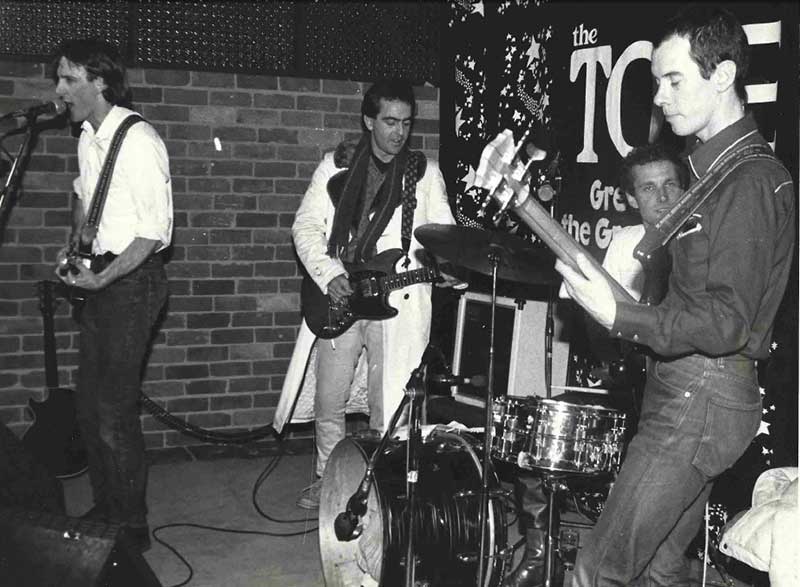
Peter Lillie and The Leisuremasters.
The influence of heroin’s then Saint, Lou Reed, is also conspicuous throughout “Carlton”, although ironically one of the most Reedy tracks, Mark Gillespie’s “Suicide Sister”, pays homage to a “Mogadon madonna” (and who of us around then can forget that other charming drug of choice of this era, the ubiquitous Mandrax – or mandies – which I will always associate with the Bondi Lifesaver and the crew occupying the back platform).
Never used any of those drugs, and they’re a long way from the innocence of the Captain Matchbox Whoopee Band’s “Roll That Reefer” track, the one (to me) mistake on this compilation in that it harks back to the earlier Much More Ballroom era. In the timeframe of “Carlton”, either a Matchbox/APG track like “Same Old Game” or Matchbox’s fabulous disco parody, “Lowest Common Denominator”, would be more appropriate.
There is one other “Carlton” drug of reference (apart from alcohol): the humble cigarette, winding a smoke trail through so many songs that one remembers with a shudder that gigs back then, the bands playing them and the audiences attending them, were in the grip of Ma Nicotine (“Who Listens To The Radio describes a teen heroine having “in one hand a cigarette hanging out a window”). Definitely something I’m very happy to leave in the past!
However most of the tracks cover the eternal themes of love sought, love gained and love lost (Jo Jo Zep’s “So Young”, Eric Gradman Man and Machine’s “Crime of Passion”, The Dots “Lowdown”) with the standout in my books being Stiletto’s “Middle Of The Bed”.
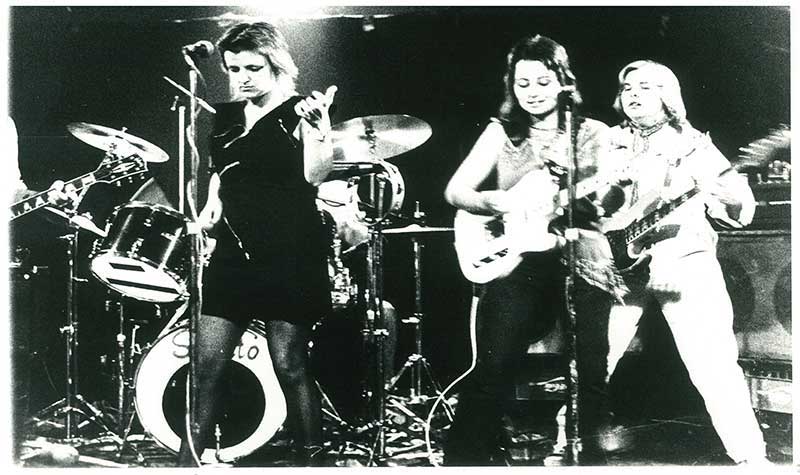 The Jane Clifton-led Stiletto
The Jane Clifton-led Stiletto
Stiletto were a group of strong adult women who sang strong adult themes with theatre artist Jane Clifton up front singing (in this song) lyrics co-written with Helen Garner, viz “I sent that man packing/I was feeling so strong/I hate to admit it/but I’m sorry he’s gone” and admits “I get so damn lonely/I give myself a fright”, wishing for “someone to love me/someone to fight/someone to like me/and tell me I’m right/someone to love me and hold me all night”. This sung in a woman’s voice, not in the asthmatic 12-year-old girl’s voice affected by so many of today’s can’t-tell-em-apart female singer-songwriters!
Another couple of favourites, albeit about relationships of a different kind to Stiletto’s, are The Indelible Murtceps’ “Blue Movies” (always loved the weirder side of Spectrum!), The Bleeding Hearts’ “Boys” (“boys wearing black leather/boys wearing jewels/boys wearing high heels/boys playing the fool/boys wearing makeup/a lotta red rouge…) and Company Caine’s “Buzzin With My Cousin”.
But the latter, like Spectrum/Murtceps from an earlier era than represented by much of this compilation, have always been faves. (And speaking of Company Caine’s Gulliver Smith and Co, I was ecstatic to discover on the accompanying Sports “Reckless (Expanded Edition)” a cover of the Caine’s fantastic “Now I’m Together”, whose hilarious lyrics describe a hero drifting from one subculture to another, each time claiming “now I’m together” before ending up at a psychiatrist, and smugly noting (obviously post-Whitlam and Medicare) “and thanks to the Labor government/I get my kicks for nix!”)
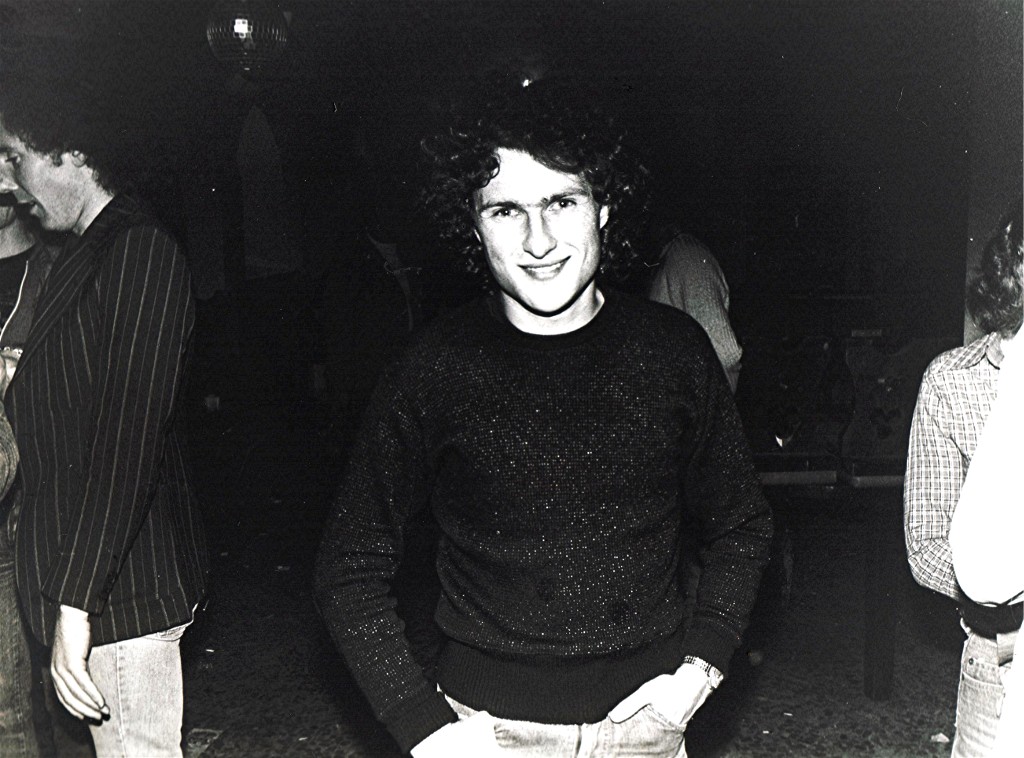
Seminal musician Ross Wilson (Daddy Cool, Mondo Rock) Brecon Walsh photo
Finally, going back to the time machine analogy, there’s another major difference between the 1970s and now which I muse may explain why strong country and rockabilly influences permeate so much of the music of the (city-based) bands on “Carlton”: back in the 70s when bands toured, they almost always did it by driving. There were only two domestic airlines – TAA (government owned) and Ansett (private) – who mysteriously always offered identical expensive fares with few discounts. QANTAS only flew internationally, and you had to book directly through the airlines or travel agents over the counter (or by phone if you owned a credit card, which were still relatively rare for many individuals until Bankcard opened up the wallets of the masses in the late 70s).
So unless bands were signed to a generous record company (and in many cases not even then!) flying between capital city gigs was out of the question, they drove.And until JJJ went national in the late-80s, once outside the city limits they listened to local radio, whether ABC country or the local commercial channel. That meant bands got to hear a LOT of country music, whether of the Nashville or the Tamworth kind, and a lot of “golden oldie” rock of the Sun studios/rockabilly kind as you travelled the miles.
So perhaps it’s no surprise that some of the first rockabilly sounds I was exposed to was via the raw, rumbling Ed Bates-era rockabilly Sports which, compared to the later pop version, is like hearing the difference between a Mack truck and a Maserati driving alongside each other on a race track. And I still feel: gimme the Mack any day!!! Conversely, Australian country artists like Slim Dusty hosted bands like Captain Matchbox in front of their (often less than impressed, hippie-intolerant) audiences, while another country legend - Chad “Old Tombstone Teeth” Morgan - gained an unexpected cult following amongst alt-rock audiences which continues to this day.
Touring bands also got to encounter a lot of truckies, whether as fearsome drivers of steel death machines on the (literally named) deadly Hume (a lot of bands lost members, supporters and road crews to road accidents) or through sharing counter and bar space at roadhouse cafes and pubs along the way.
And it showed, whether in Carlton songs like the Relaxed Mechanics’ “Truckin Casanova” or The Pelacco Bros “Truckdrivin’ Guru”, or in the appearance of truckin’ songs like Slim Dusty’s “Lights On The Hill” in many band sets. And while Melbourne’s inner city suburbs title this compilation (“Lygon Street Limbo”) and provide the setting for many of its dramas, outer suburban Australian culture – the subject of many films and plays of this era - is simultaneously celebrated and sneered at in Peter Lillie’s “Hangin’ Round The House”, The Sports’ “Live, Work and Play”, Martin Armiger’s “I Love My Car” and Daddy Cool’s “Saturday Night”. A Captain Matchbox staple of this era - “Out In The Suburbs” - would have been an obvious inclusion, but I’m just being picky.
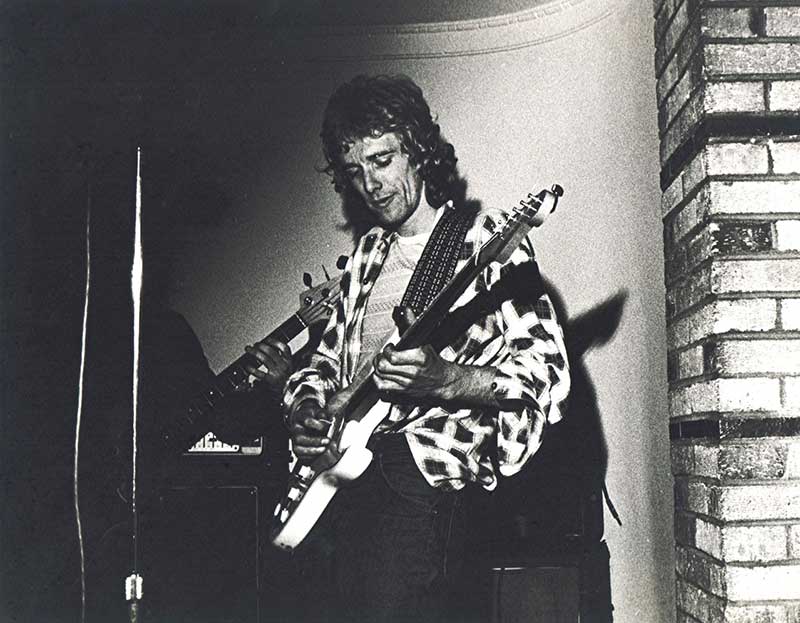
Martin Armiger. Brecon Walsh photo
For if Dave Laing (and his remarkably supportive bosses at Warner Australia) doesn’t ALREADY deserve an AO for his earlier releases documenting long-ignored Australian musical scenes, he certainly deserves it for the “Carlton” compilation (and much credit is also due to Jen Jewel Brown for inspiration and perspiration on this and the other CDs. Jen is a woman of impeccable taste and awesome writing skills I have been in awe of since she kindly invited me as a teenage writer to visit her at the Digger magazine!)
So show your support for a great project and some great musicians: buy a copy of “Carlton” for yourself and others this Christmas (an ideal stocking filler!) NB: I’m aware of many other bands in places like Sydney, Brisbane, Adelaide and Perth who critically filled this transitionary gap between hippie and punk - Warwick Gilbert of Radio Birdman/The Hitmen and I having a long discussion one evening about how 1975 was year zero both musically and art-wise, even in rock posters, between the two eras.
However this is an article about Melbourne music, written by a transplanted Queenslander who lived in Melbourne in 1969, 1970 and 1974 and commuted between Melbourne and Sydney in the years in between and since (the one thing Melbourne couldn’t offer me was immediate access to the ocean, my other great love in life!)
And the Fitzroy floor? In 1985, while staying at the infamous Prince of Wales hotel in St Kilda with friends touring from Adelaide – The Exploding White Mice – I offered to guide them across town to attend a radio interview at 3CR. The address, in Smith Street Fitzroy, seemed mightily familiar, and so it should have: it was a terrace house (one of a pair made larger by the removal of a middle wall) where I briefly lived. It now homed the community station, and my old bedroom had been turned into their record library!
Read Steven Danno Lorkin's album review
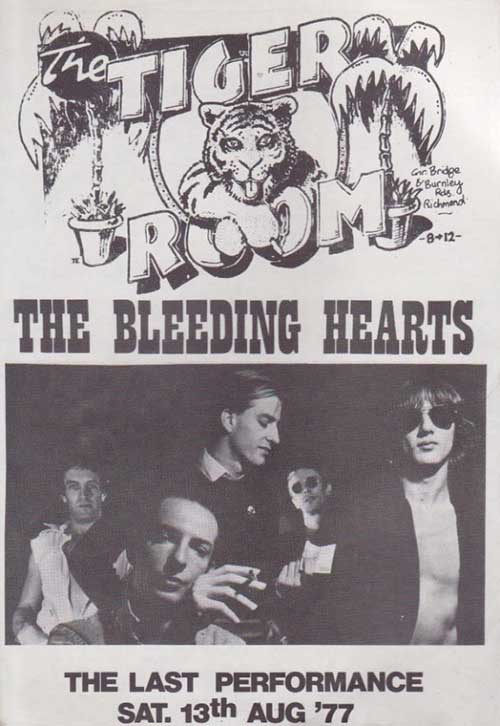

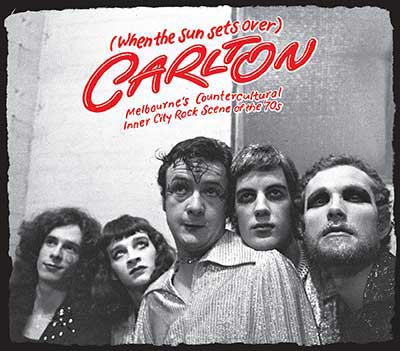 There’s a time machine where I work. The size of an average bathroom, it can spin rock samples at 16 times gravity, replicating a century’s worth of gas and water movements throughout aquitards in a couple of days, or a millenium’s worth in a week. Impressive!
There’s a time machine where I work. The size of an average bathroom, it can spin rock samples at 16 times gravity, replicating a century’s worth of gas and water movements throughout aquitards in a couple of days, or a millenium’s worth in a week. Impressive!